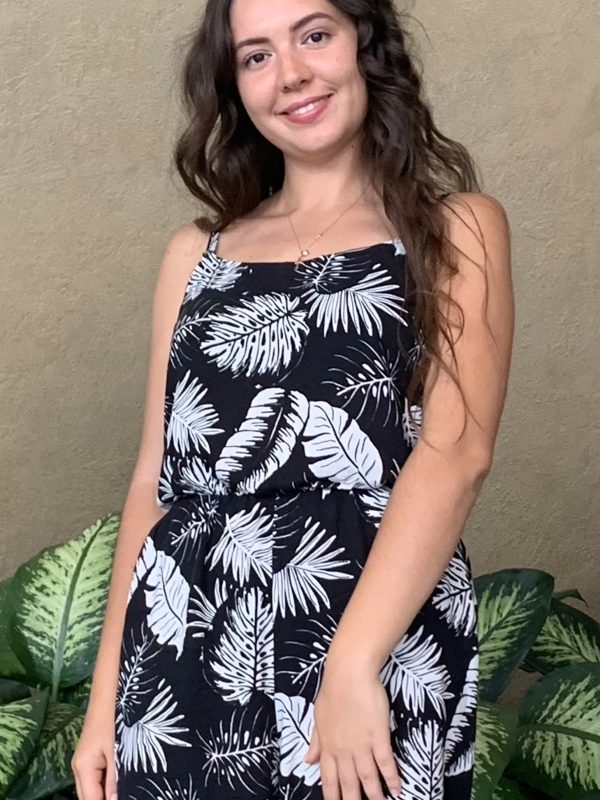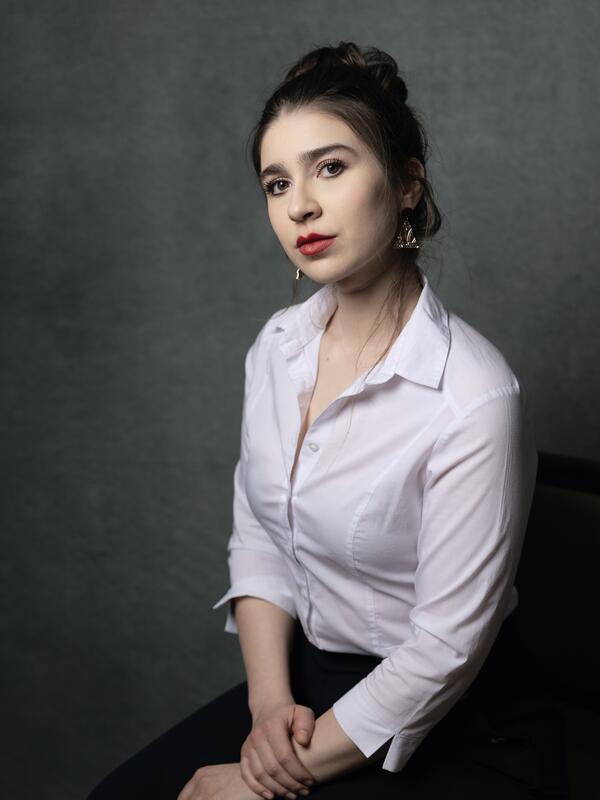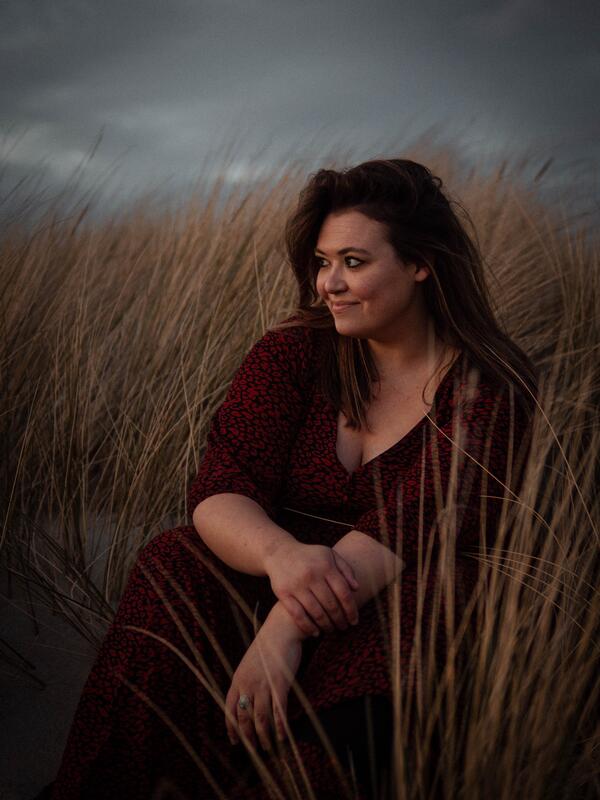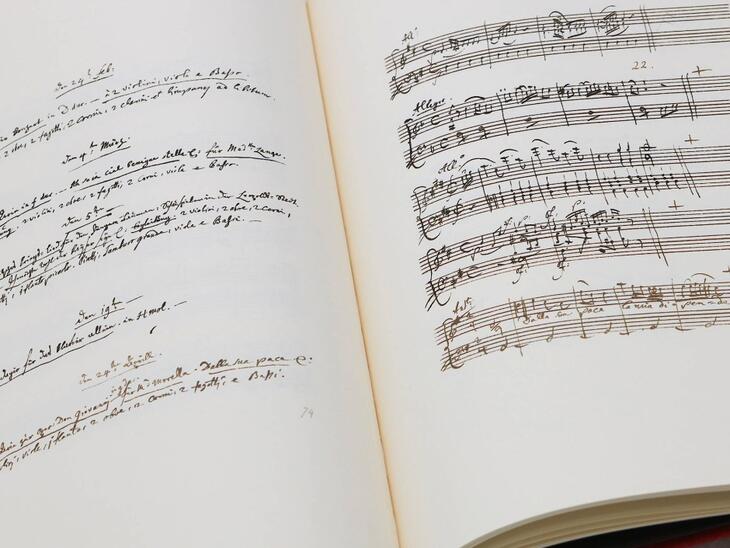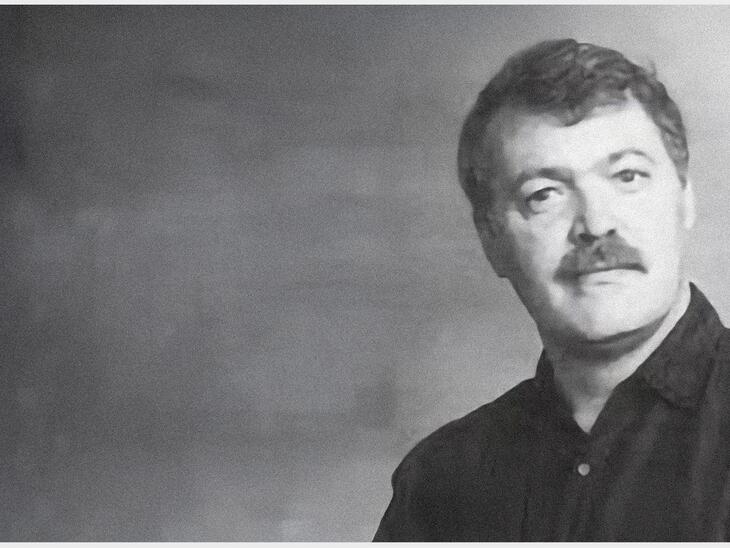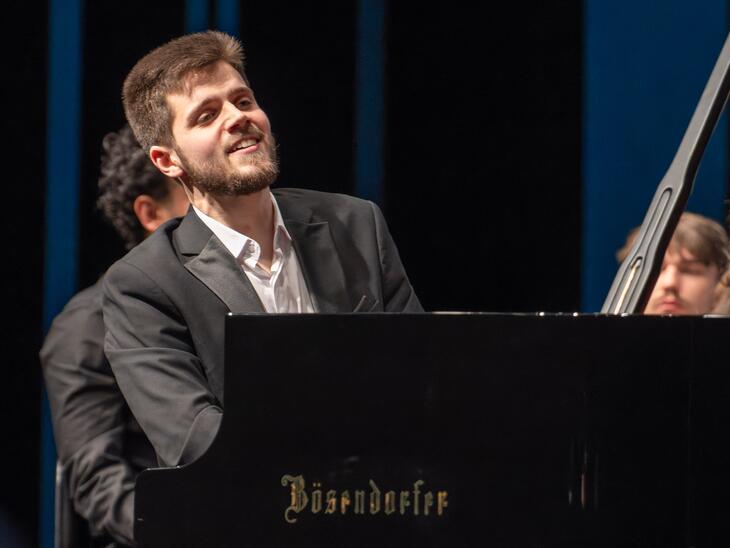The magic of the creation process
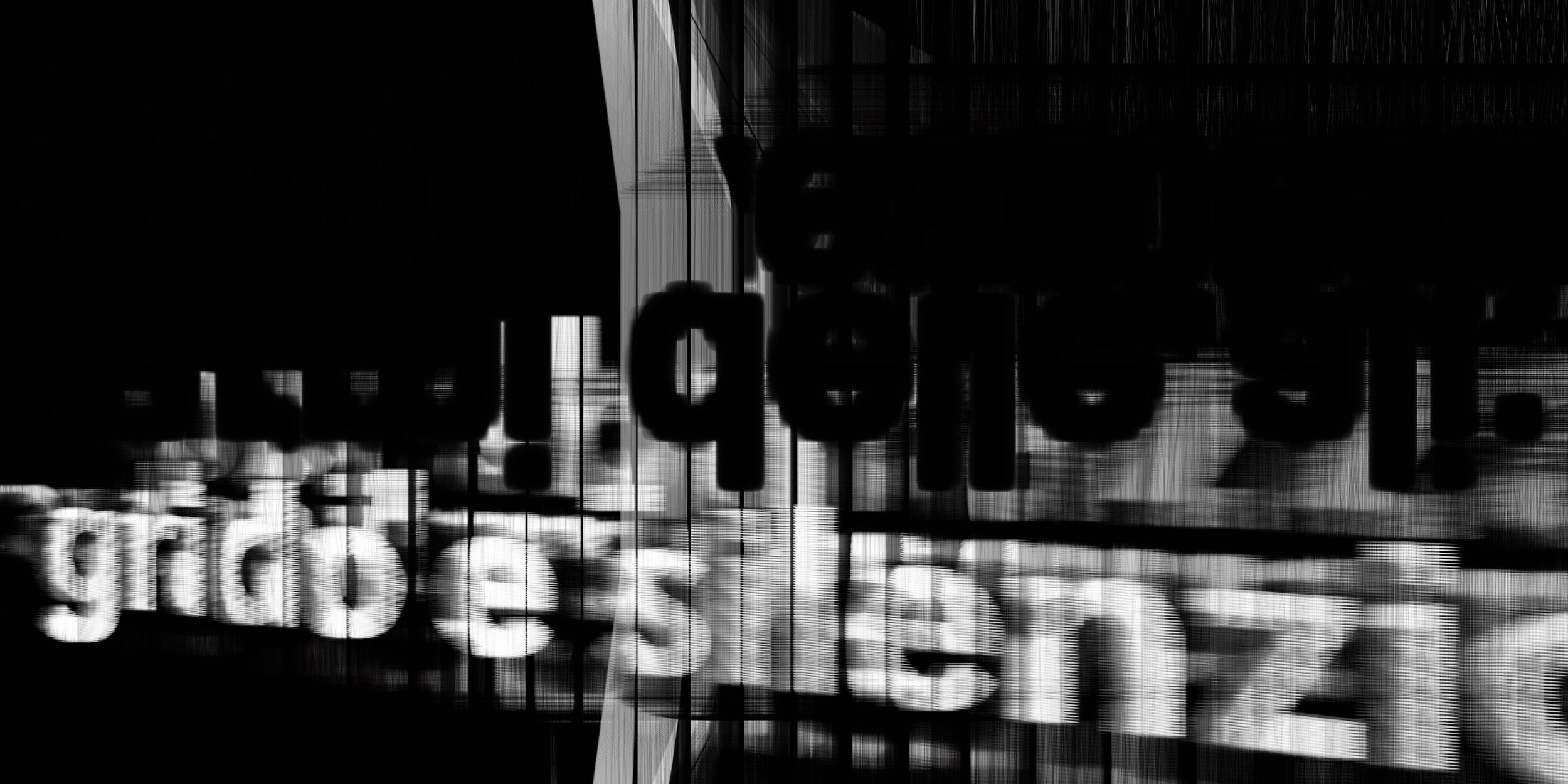
Julia Maria Eckes, Anastasia Fedorenko and Anna-Maria Husca are about to complete their Master's degree in Opera & Music Theatre at the Mozarteum University. In this interview, they give us an insight into their everyday life as students and let us in on the rehearsal process for the opera ‘Medusa / Giuditta’.
Anna-Maria, why did you decide to study for a Master's degree in Opera & Music Theatre at the Mozarteum University?
Anna-Maria Husca: After completing my bachelor's degree in Ireland, I took part in the Mozarteum University's summer academy. During this time, I fell head over heels in love with the city and was deeply inspired by the artistic atmosphere. What particularly impressed me about the Master's degree in Opera & Music Theatre was the strong focus on the rehearsal and performance process, very similar to that of a professional opera company - embedded in the protected framework of the university. The curriculum makes it possible to deal intensively with roles with sufficient time and targeted guidance, which perfectly matched my desire to gain practical stage experience in an environment conducive to learning.
All three of you are about to complete your Master's degrees. Julia, how are you feeling about the prospect of starting your career? You have already been involved in projects outside of university and have been able to gain initial experience on various stages ...
Julia Maria Eckes: My time at the Mozarteum really prepared me for professional life in the best possible way. Through the collaboration and regular dialogue with my lecturers and professors, I gained a clearer picture of what to expect in the coming years. Nevertheless, I was already very aware of the challenges and hurdles before I started my vocal studies and some of my views have changed since then: Until a year ago, I couldn't imagine a future as a choral singer. Repeated participation in choirs has changed my view of this: I have learnt from many great colleagues who have been working as freelance singers for years that there are an incredible number of ways to make a living as an (opera) singer.
In June, the next opera production in Kai Röhrig and Florentine Klepper's class will be ‘Medusa / Giuditta’, a work in which Alessandro Scarlatti's ‘Giuditta’ combines early music with the contemporary composition ‘Medusa’ by Yann Robin. Two years ago, you were already part of a production of ‘Elissa / Dido’ in which the tension between baroque and contemporary music was explored. What particular challenges do you face in contrast to rehearsing so-called ‘standard repertoire’?
Anastasia Fedorenko: It is indeed a real challenge to sing both contemporary and baroque music at the same time - it requires a lot of commitment and dedication. My experience in the production ‘Elissa / Dido’, in which I sang the role of Belinda, broadened my view of my repertoire and my vocal possibilities enormously. I still remember well how difficult and unclear Belinda's epilogue felt at first - and how fluently and naturally I was able to sing it over time. ‘Medusa / Giuditta’ represents a completely new challenge for me, because the parts of Giuditta and Angelus Novus are completely different - both in their tessitura and in the musical material. This requires a high degree of concentration, continuous practice and fine-tuning of the vocal technique. It is a very valuable experience for me, because the music is beautiful, the story powerful and touching.
You are virtually direct eyewitnesses to the creation of ‘Medusa’. Yann Robin's composition is still (at the time of our interview in mid-May, note) ‘in progress’. An exciting or difficult circumstance?
Anastasia Fedorenko: It's an exciting and fascinating experience - and if I'm honest, it's also a little nerve-wracking at times. I really enjoy experiencing the process of creating ‘Medusa’. Yann Robin's music is completely new to me and I find it very inspiring. It forms a strong contrast and at the same time is a wonderful complement to Scarlatti's ‘Giuditta’.
Looking back: What made your studies here in Salzburg ‘special’? Were the expectations you had when you came here fulfilled?
Julia Maria Eckes: The people made Salzburg special for me. At first, it wasn't easy for me to move from my place of study in Rostock to Salzburg. I had spent the last five years there, was very well connected and felt incredibly comfortable. With the move to Salzburg, the start of my Master's programme and the beginning of my studies at the renowned Mozarteum, I flipped the switch to ‘Now the serious side of life begins’. Now, at the end of my Master's programme, I can say that I have met some great, inspiring people, both lecturers, with whom I maintain close interpersonal contact, and my fellow students, with some of whom I have made new friends for life. I am delighted to be able to call a city as enchanting as Salzburg my home.
Anna-Maria Husca: Looking back, I am deeply grateful for my time studying at the Mozarteum University. My experiences here have not only fulfilled my expectations, but in many ways even exceeded them. I was able to work with exceptional teachers and make close, enriching friendships with fellow students - this had a significant impact on my personal and artistic development. Salzburg itself has a special significance for me as a city: As a historical and cultural centre, Salzburg offers a unique environment for artistic growth. The Salzburg Festival in summer and the proximity to major music metropolises such as Munich and Vienna create an inspiring and well-connected environment for young musicians. During my studies, I performed several important opera roles on stage, including the Governess in Britten's ‘The Turn of the Screw’, Dido in Fourès/Purcell's ‘Elissa / Dido’, Gretel in Humperdinck's ‘Hansel and Gretel’ and Alice Ford in Verdi's ‘Falstaff’. In addition to the academic training, we also received targeted preparation for auditions with renowned personalities from the opera world - an experience that provided valuable insights into the professional environment. I gained numerous skills, experiences and contacts that will serve as a solid basis for my future career.
(First published in the Uni-Nachrichten / Salzburger Nachrichten on 31 May 2025)
Dates
-
13.6.202507:00 pmMax Schlereth SaalMedusa / GiudittaZwei Frauen, zwei Legenden: Das Oratorium „Giuditta“ von Alessandro Scarlatti (Libretto: Antonio Ottoboni) wird mit der Uraufführung der Kammeroper „Medusa“ (Libretto: Elisabeth Gutjahr, Musik: Yann Robin) verwoben.Opera· Tickets (Opens in new tab)
-
14.6.202504:00 pmMax Schlereth SaalMedusa / GiudittaZwei Frauen, zwei Legenden: Das Oratorium „Giuditta“ von Alessandro Scarlatti (Libretto: Antonio Ottoboni) wird mit der Uraufführung der Kammeroper „Medusa“ (Libretto: Elisabeth Gutjahr, Musik: Yann Robin) verwoben.Opera· Tickets (Opens in new tab)
-
16.6.202507:00 pmMax Schlereth SaalMedusa / GiudittaZwei Frauen, zwei Legenden: Das Oratorium „Giuditta“ von Alessandro Scarlatti (Libretto: Antonio Ottoboni) wird mit der Uraufführung der Kammeroper „Medusa“ (Libretto: Elisabeth Gutjahr, Musik: Yann Robin) verwoben.Opera· Tickets (Opens in new tab)
-
17.6.202507:00 pmMax Schlereth SaalMedusa / GiudittaZwei Frauen, zwei Legenden: Das Oratorium „Giuditta“ von Alessandro Scarlatti (Libretto: Antonio Ottoboni) wird mit der Uraufführung der Kammeroper „Medusa“ (Libretto: Elisabeth Gutjahr, Musik: Yann Robin) verwoben.Opera· Tickets (Opens in new tab)
